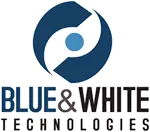Unlock Growth: Why Cloud Software Solutions are a Game-Changer for your Business?
Cloud software refers to the abstraction and management of IT infrastructure and services through software rather than traditional hardware-based methods. Applications, services, and different tools are accessed via the internet rather than being installed locally on a company’s device.
Key features of cloud software solutions
Remote Accessibility
Accessible from anywhere with an internet connection.
Scalability
Easily scales up but also down to meet changing user demands.
Cost-Effectiveness
Reduces upfront costs by eliminating the need for physical infrastructure or software installation.
Automatic Updates
Providers manage updates and maintenance, ensuring the latest features and security patches are always available.
Collaboration
Often supports multi-user access for real-time collaboration
Security
Providers typically offer robust security measures to protect data.
Small and Midsize Business Preferences
Modern small and midsize businesses increasingly prefer cloud-based software solutions over on-premises alternatives, aligning with up-to-date business practices and standards. However, industries with strict regulations still consider keeping data on-premises, but it requires considerable infrastructure and resources to manage it.
There are many different cloud based software solutions in the market. In this post, we will address Customer Relationship Management (CRM) and Enterprise Resource Planning (ERP) systems.
Customer Relation Management (CRM)
A CRM is both a strategy and a software tool designed to help businesses manage interactions with current and potential customers. It centralizes customer data, streamlines communication, and provides tools for sales teams to track leads opportunities, and the sales pipeline; for marketing to manage campaigns, personalized emails and performance metrics; and for customer support teams to handle service requests, gain customer insights and preferences, and resolve issues efficiently.
Small businesses can significantly benefit from using a CRM, especially as they scale. It helps improve organization, enhance customer relationships, promote better sales strategies, and provide analytics to understand customer preferences, sales performance, and areas of improvement.
Enterprise Resource Planning (ERP)
An ERP system refers to software that integrates and manages core business processes such as finance, human resources, supply chain, inventory, warehouses, and operations within a single platform. ERPs streamline workflows and improve efficiency by providing a centralized database that ensures different departments within a business can share and access data in real-time, combining and processing information from multiple business areas into a unified system, automating repetitive tasks as payroll processing, order fulfillment, and reporting.
There are several affordable solutions available in the market for small and midsize businesses. Potential improvements include increased efficiency, data-driven decision-making, scalability, enhanced collaboration, and cost savings. Businesses with limited operational complexity and budget constraints may not yet be ready for such solutions. However, companies anticipating rapid growth will likely need one sooner to prevent increased activity and operations from causing disruptions or business breakdowns. (End Short #3)
Conclusion
Be ready to streamline your operations and build stronger customer relationships. Take your business to the next level with the right CRM and ERP solution; get started today!
Follow us on social media and stay connected, subscribe to our YouTube channel.
If you need assistance with these topics, contact us, we’ll be happy to help.
#CloudComputing #DigitalTransformation #BusinessAutomation #DataDriven #EnterpriseSolutions #CustomerSuccess #SupplyChainManagement #FinancialManagement #InventoryManagement #WarehouseManagement #SMBTech #CRM #ERP

